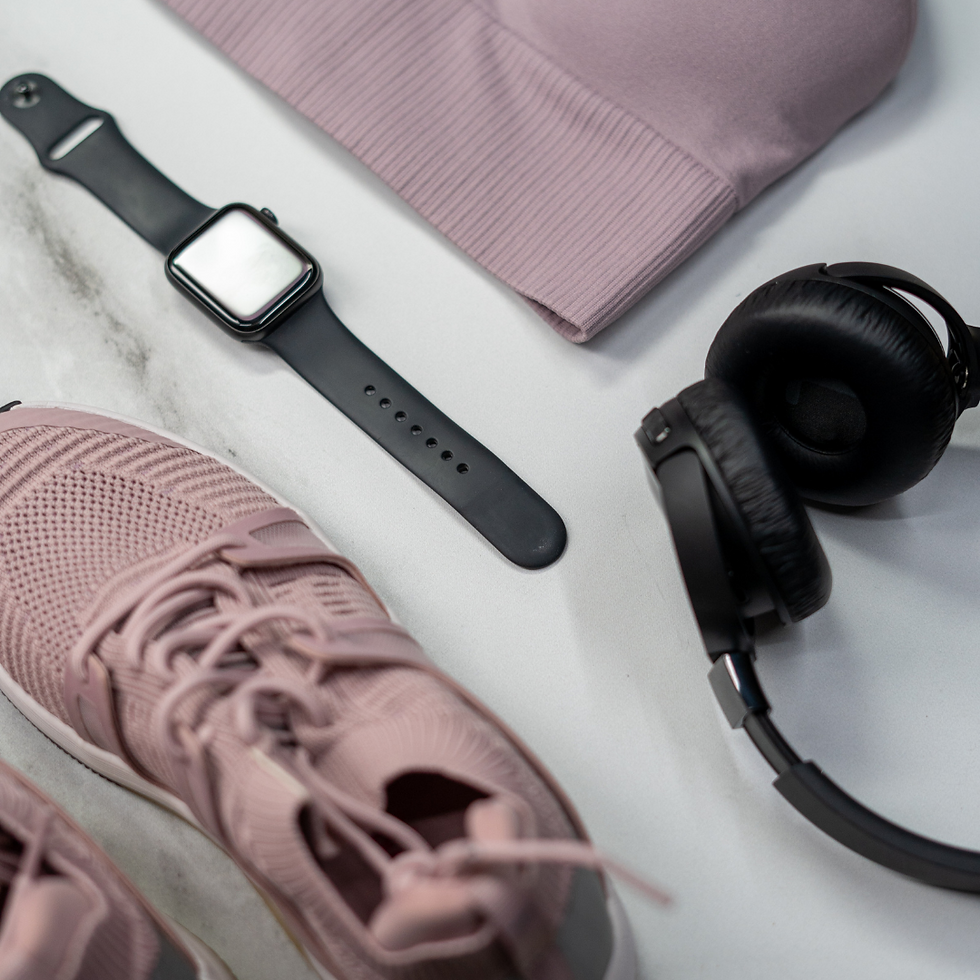The Health Benefits of Wearable Tech
- jonathanvillacci
- Jan 4, 2022
- 3 min read
Updated: Jan 6, 2022
What is wearable technology and where did it come from?
Judging by its name, the term would suggest a service-providing device which takes shape to the human body. Wearable technology can be fabricated into clothes and accessories such as glasses, watches, and even rings.
The idea that a convectional watch could be more than just a time telling accessory would seem ludicrous to a pocket watch wielding Victorian, however in current times, they are everywhere we look.
Apple, that global tech brand, are leading in the world's largest smartwatch unit sales, and have supposedly shipped 43.6 million Apple watches from their warehouses in 2020 according to Wearable. Of course, this statistic isn't mammoth in regards to the total population, but its influence and status remains strong in contemporary media.
Let's bring it back, way before the age of Apple and Fitbit, to the first time the concept of a wearable gadget ever made its way into popular culture. The origin of the smart watch first came to life in 1946 when comic book character Dick Tracy was seen wearing the iconic two-way technologically advanced and futuristic gadget on his wrist - the Wrist Radio.
In the comic, the detective uses the watch to communicate to his police force subliminally. Fast forward to today, and the principal of communication can still be achieved through smart watch technology (with a few added extra bits of course!). In most detective stories, there is a scientist developing futuristic and quirky gadgets for the protagonist to use at their disposal, and Apple were our scientists when they brought out the first generation Apple Watch on April 24, 2015.

More than just a pretty face
A smart watch will still tell you the time, but that isn't the sole reason for its existence. Alongside being able to pair to your other devices via Bluetooth and accounts such as Apple ID, the built-in health applications allow the user to track their sleeping pattern, check up on how many calories they have burnt, as well as undertake heart readings with the newly-introduced ECG app in the new Apple Watch Series 7.
The sleek design of smart watches are seen as fashion pieces, encouraging users to look and feel good with the added incentive of promoting a healthier lifestyle. Does having a smart watch automatically make everyone proactive? Probably not, but it's a step in the right direction.
So, here's a list of reasons why smart watches are benefiting our overall health:
Healthcare - patients can use their smart devices to monitor their heart rate and sleeping schedule, and both of these statistics can become very useful pieces of information to doctors when examining a patient's overall state and to help improve their wellbeing.
Encourage activity and happiness - 57% of smart watch owners feel encouraged to start exercising more after making a smart device purchase. When we exercise, our brain releases endorphins, have you ever been on a run and really felt the burn? Well, that burn is good for our mental health. Using wearable technology as a way of reminding ourselves to undergo exercise or even to correct our posture whilst sitting at a desk all day is beneficial for our lifestyle, and this is great for when life gets busy and we just need a gentle reminder to sit back and breathe, to get outside or to work our bodies to benefit our overall health and body positivity.
They keep track of calories which go in and out - working on your body whilst also sustaining a healthy diet can be tricky, and a hard thing to put our bodies through. Smart watches allow people to track what foods they are eating daily and work out the exact calories needed to burn in order to remain in a caloric deficit. Healthy eating is a vital part of this, and evidence shows that people who consume healthy food groups have a 25-35% lower risk of developing depression. Keeping track of our consumption levels ensures that users can not only reach their body goals but also remain healthy.
What is the verdict?
Smart devices like all electronic devices come at a variable cost, with some costing more than others. A baseline Fitbit smart watch will set you back £99.95, and this price is far cheaper than the new Apple Series 7 Watch which starts from £369.
If you are just looking for a product which will do the basics very well, then head towards a more baseline entry-level smart watch such as the Fitbit Inspire 2.
Wearable technology is certainly paving its way in advancing our population's health and wellbeing. If you want to maintain a positive lifestyle, however find yourself constantly busy, then smart watches might be the tool for you, as they provide an admirable approach to finding time for yourself and enhancing body positivity.



Comments